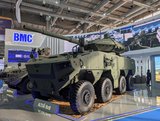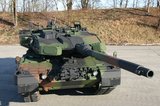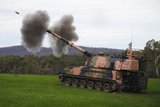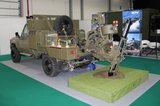Rheinmetall predicts NATO demand for hundreds of Panther KF51 tanks
Rheinmetall aims to capture a significant slice of the market for replacement MBTs in the 2020s and 2030s with the KF51 Panther. (Photo: Rheinmetall)
One of the highlights of June's Eurosatory 2022 event in Paris was the unveiling of the Rheinmetall Panther KF51 main battle tank (MBT), which the company developed as a private venture to meet expected future operational requirements.
Rheinmetall sees a potential NATO market for between 500 and 800 Panther KF51 MBTs in the 2025-2035 timeframe with an even larger market of between 5,000 and 8,000 from 2035 onwards, and the company expects to capture a significant slice of this.
France and Germany are currently working on the Main Ground Combat System (MGCS) to replace the Leclerc and Leopard 2 tanks respectively,
Already have an account? Log in
Want to keep reading this article?
More from Land Warfare
-
![US Army plans Q2 prototype proposal request for its Mobile Tactical Cannon programme]()
US Army plans Q2 prototype proposal request for its Mobile Tactical Cannon programme
The US Army is seeking a mature 155mm, wheeled, self-propelled capability to replace the towed M777 howitzer in the Stryker, Mobile and Infantry Brigade Combat Teams as it targets a potential 498-unit acquisition goal.
-
![British Army’s Project Stokes 120mm mortar bids due in March 2026]()
British Army’s Project Stokes 120mm mortar bids due in March 2026
Project Stokes could see a new 120mm mortar capability enter British service, with domestic production and international partnerships central to competing bids.
-
![MKJ Warrior Series — The Nett Warrior Qualified Connector for Today’s Soldier Systems]()
MKJ Warrior Series — The Nett Warrior Qualified Connector for Today’s Soldier Systems
ITT Cannon’s MKJ Warrior connectors are designed for the harshest environments, delivering mission critical comms, navigation and USB data/power.






















